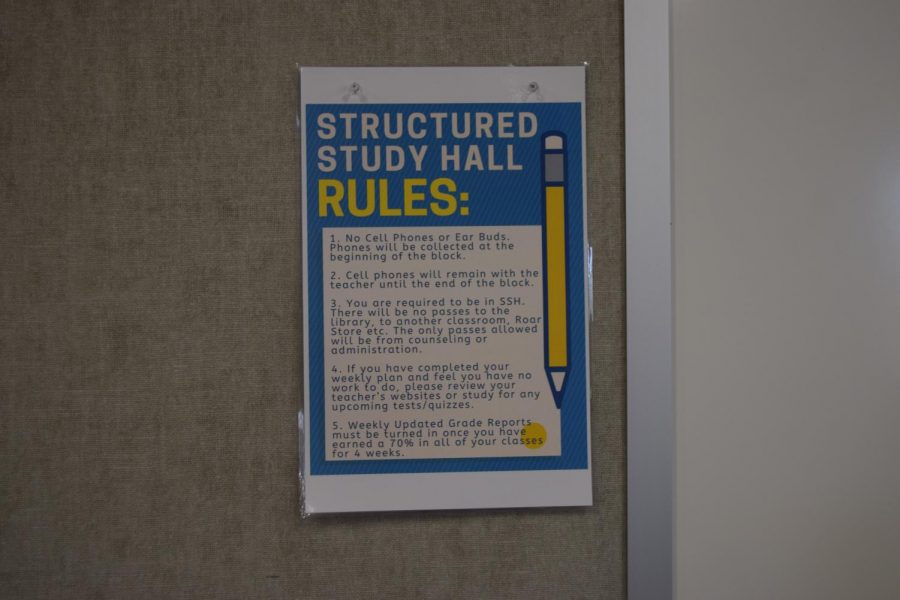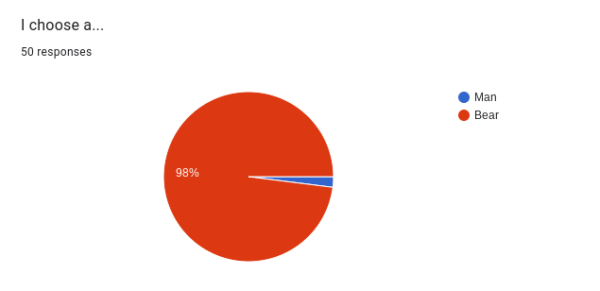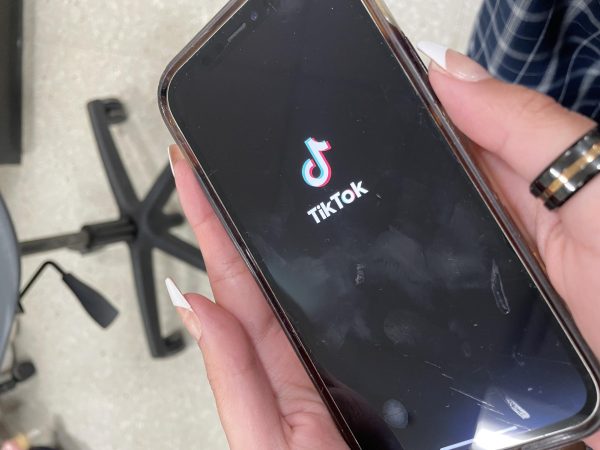Study Halls in State High: Structured or Destructive?
Just one poster among many seen in study halls across State High, explaining the rules for structured study halls in place. These posters were distributed a week or two after school had started. Their presence caused a stir among students who were used to having their phones or earbuds on them.
October 27, 2019
In high school, we prepare for the real world. In the real world, adults have their phones on them but have mastered the skill of self discipline. How can students master that skill when the freedom and options are taken from them?
Alex Konunchuk, a freshman who is one of many students being affected by new structured study halls, voiced his negative perspective on these rules in an interview. The new rules explain that during study halls, freshmen are not allowed to use their phones or earbuds. He said that if the goal was to ensure students got work completed, there were better ways of doing that.
“You should be allowed to use your phone if you have no work, but at the same time, you should have to prove that you have no work,” Konunchuk said. “Show a teacher all your assignments and that they’re done. The earbud rule makes no sense at all because a lot of people study and work better with music. I just think that there are better ways to make it structured without taking away the freedom.”
In classes, students are rarely required to turn in their phones and are allowed to use earbuds during quiet writing time. In fact, Konunchuk can have his phone on him during seven of his eight of his classes. If teachers who are actively constructing lessons and teaching don’t confiscate phones or earbuds, study halls have no reason to do that either.
Furthermore, phones and earbuds are not to blame for students that don’t complete work.
“I just play ‘snake’ on my chromebook,” Konunchuk said, “and I did that to pass the entire study hall yesterday… And some people are finding out how to get like Netflix and stuff, so I mean if you’re really trying to make them work, give them papers.” No matter who you are, I think everyone can agree there are many ways of wasting time and being unproductive on Chromebooks.
“It’ll actually make them do work less because I feel like they’ll be less motivated because they have less freedom,” Konunchuk said.
The truth is, if a student doesn’t want to work or be on task, no one but themselves can make them do that. At our age, we must be responsible for poor choices. The student is the one to blame when work is not done because they are the ones in control.
An interview with LE teacher Sheila Abruzzo provided another perspective on how earphones and phones can affect highschoolers while working. In LE, a form of study hall for kids taking mainly advanced classes, students are not required to adhere to structured study hall rules. While some might argue that because these kids take more advanced classes, they are more responsible than freshman in regular study hall, that idea is both untrue and unfair to good students that didn’t have the opportunity to join LE.
“Unless it’s a problem, it seems unwise to not allow students to have headphones and their phone,” Abruzzo said. “I mean, you guys grew up in a generation of multitasking, and noise. Some kids need music in their ears in order to read, or study, or focus and that’s not a part of my generation as much but it is yours. So, I think for some kids it is a detriment to their learning to not be able to drown out extraneous noise and listen to music.”
Beyond the cell phone rule, earbuds being banned is even more destructive. In many classes, headphone use is not only allowed, but encouraged. During quiet work time, there is no reason why listening to music would interfere with the learning process. The only time listening to music is not allowed is during instruction or when completing group work, neither of which occur during study hall.
“I think [the helpfulness of music] is an individual thing for students… I don’t know if I’m the judge of that,” Abruzzo said. If a teacher that works with and observes students during quiet work time every single day agrees headphones are individual choices, how can such an overarching and disagreeable policy help everyone?
The answer is that it can’t help everyone, which is exactly why this policy should be changed and not applied to students unless absolutely needed.












